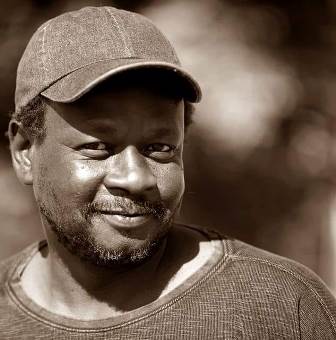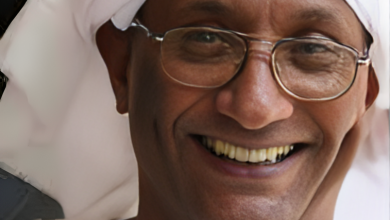In the Midst of Fiery Neighbouring Countries: A close Image of Chadian Attitudes (1)

Abdul Hafeez Maryoud
In the wake of the Darfur crisis, international reports indicated that the number of Sudanese refugees in eastern Chad reached more than 600,000 refugees. Chad opened its camps and facilitated entry into its territory. It asked for aid in light of its inability to carry out the burdens of these camps alone.
The survival of an estimated number of Sudanese refugees in Chad has prolonged. This is because the reasons for asylum had not yet disappeared.
But that did not prevent Chad from later receiving refugees from the violence of political life in Central Africa. It opened its lands again to them. In light of major regional and global transformations, represented by the Libyan situation, after the departure of Muammar Gaddafi’s regime, huge numbers of Chadians residing in Libya have preferred to return to their homeland.
Their numbers are estimated at more than 300,000 Chadians, which will exacerbate the internal situation. Particularly since Chad is classified as one of the poorest countries.
Twenty years after Darfur crisis, a fierce Sudanese war broke out between the SAF and the Rapid Support Forces RSF on April 15, 2023.
It is clear that Chad will be a safe haven for refugees from the ravages of war in the areas of Darfur, the region bordering it.
Reports of the United Nations High Commissioner for Refugees UNHCR indicate that approximately 300,000 Sudanese refugees have joined their ancestors in Chadian territory. However, parties concerned with the same matter say that the total number of Sudanese refugees in Chad since 2003 has exceeded one million, a number that does not exceed the total number of Sudanese refugees in all neighboring countries.
There is no doubt that many Sudanese, particularly from the Darfur region, have become involved in Chadian life, to the point that the description of a refugee no longer applies to an individual.
Although there are no accurate numbers in this regard, this category cannot be underestimated.
This is similar to those residing in Chad for work purposes for a long time, as the Sudanese community in Chad represents one of the most active and largest communities in neighboring countries.
Perhaps it is only surpassed by some communities in the Gulf countries.
in history:
Chad, which gained its independence in 1960, shares more than one tribe and ethnic group with Sudan.
The same thing is happening in its neighbourhood: Libya, Cameroon, Central Africa, Nigeria, Niger. Perhaps because of this, and because of its untapped resources, Chad has suffered from incursions and interference due to the ambitions of its neighboring countries, specifically Libya and Nigeria. In terms of diversity and ethnic and cultural richness, Chad is very similar to Sudan, to the point that Westerners called it “French Sudan,” as opposed to “Anglo-Egyptian Sudan.” It even has a Christian and pagan south, similar to what happened in Sudan, before the secession of the south.
French colonialism, contrary to what the English did in Sudan, worked to develop the Christian south and qualify it to be its successor after independence.
He devoted education to the South, enrolled southerners in civil and military service, early and intensively, while keeping the North as it was, so that it would be merely subordinate to the South.
This is what happened after independence, when southern Chadians dominated power for 15 years.
This period witnessed a violent resistance movement and fierce wars, even after the northerners took power. Chad did not witness clear stability and a coherent arrangement until after President Idriss Deby took power in 1990.
Although his rule was not spared from skirmishes and rebellions, he was able to bring about a shift in the method of governance, prominent aspects of development, and clear stability in education, health, and some services.
He paid the price for maintaining stability with his life, as he died fighting in northern Chad.
The most prominent feature of the experience of Idriss Deby’s rule is finding a formula for the equation that preserves diversity, and avoids the country separating and fighting similar to what happened in Sudan.
Through the experience of the bitter war that destroyed and paralyzed the country, the factional war at the end of the seventies until the end of the eighties, in which the Chadian army turned into one of the warring factions, a necessary awareness among the Chadian people of the importance of avoiding war, became the equation that keeps Chad together until now. .
Between two worlds:
At a time when some writers and those interested in political affairs believe that successive Sudanese governments have dealt with Chad and the situation in it as a backyard, just as Egypt deals with Sudan, in that it has continued to interfere in Chad’s internal affairs and works to keep it subordinate only.
Some believe that there are overlapping, developed, and balanced relations between the two countries.
But what is most likely is that Sudanese governments, like the Sudanese people in general, harbor some condescension in dealing with Chadian governments and people.
It is clear that the society of central and northern Sudan does not have sufficient knowledge of Chad, so it has avoided this, and this is a natural thing because there are no common borders with it. The Darfurians are also ignorant of the characteristics of the Egyptian, Eritrean, and Ethiopian people, but this should not be part of the way the official institutions and centers work. Helps in decision making.
During the war between the army and the Rapid Support Forces RSF , Chad was portrayed as a hostile state. It continued to provide assistance for quick support. In fact, the official position of the government in Chad does not go beyond treating what is happening in Sudan as an internal matter in which it cannot interfere.
It was officially accused by the Sudanese army of involvement in assisting the Rapid Support Forces RSF.
Chad officially requested an apology from the Sudanese Ministry of Foreign Affairs, but the latter refused. As a result, the Chadian government expelled diplomats and soldiers from its territory, which is still a moderate position that takes into consideration good neighborliness.



